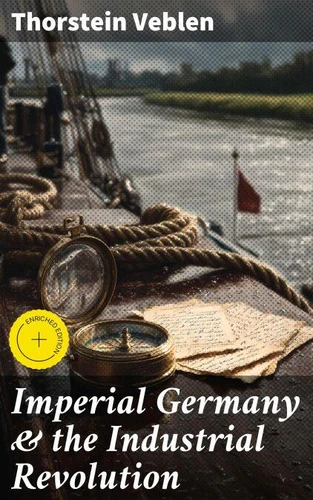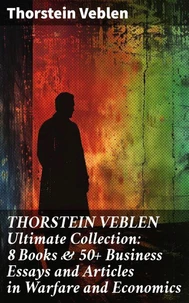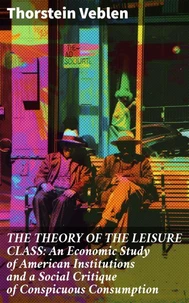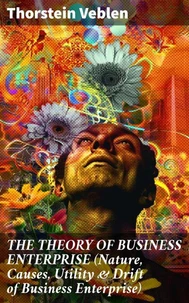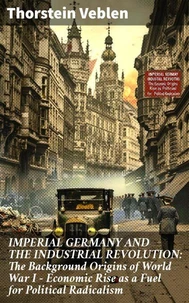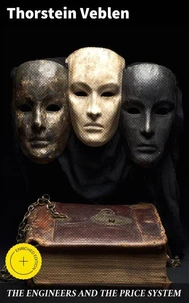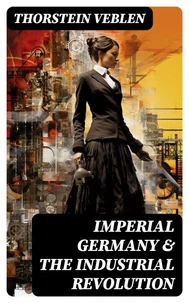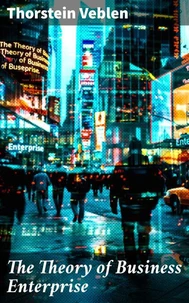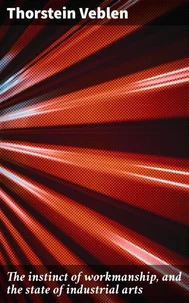Imperial Germany & the Industrial Revolution. Enriched edition. The Economic Rise as a Fuel for Political Radicalism & The Background Origins of WW1
Par : ,Formats :
Disponible dans votre compte client Decitre ou Furet du Nord dès validation de votre commande. Le format ePub est :
- Compatible avec une lecture sur My Vivlio (smartphone, tablette, ordinateur)
- Compatible avec une lecture sur liseuses Vivlio
- Pour les liseuses autres que Vivlio, vous devez utiliser le logiciel Adobe Digital Edition. Non compatible avec la lecture sur les liseuses Kindle, Remarkable et Sony
 , qui est-ce ?
, qui est-ce ?Notre partenaire de plateforme de lecture numérique où vous retrouverez l'ensemble de vos ebooks gratuitement
Pour en savoir plus sur nos ebooks, consultez notre aide en ligne ici
- Nombre de pages325
- FormatePub
- ISBN859-65--4767258-6
- EAN8596547672586
- Date de parution20/11/2023
- Protection num.Digital Watermarking
- Taille1 Mo
- Infos supplémentairesepub
- ÉditeurGOOD PRESS
Résumé
In "Imperial Germany & the Industrial Revolution, " Thorstein Veblen offers a profound analysis of the interplay between industrialization and the emergence of modern imperial dynamics in Germany during the late 19th and early 20th centuries. Employing his characteristic incisive wit and sociological lens, Veblen critiques the economic behaviors that facilitated the rise of a capitalist society, which he argues was inextricably linked to militarism and imperial expansion.
His stylistic approach is marked by a blend of empirical evidence and theoretical inquiry, situating the text within the broader context of American pragmatism and European economic thought, making it a seminal work for understanding the socio-economic transformations of this pivotal era. Veblen, an influential economist and social philosopher, was deeply engaged with the cultural and institutional factors that shape economic phenomena.
His experiences growing up in the rapidly industrializing United States informed his critical perspective on capitalism and its societal implications. Veblen's reflections on leisure, consumption, and class conflict shaped his analytical framework, making this work a critical commentary on the pitfalls of modernity and industrial expansion. "Imperial Germany & the Industrial Revolution" is essential reading for those interested in economic history, sociology, and political theory.
It invites readers to grapple with the complexities of capitalism and its consequences, encouraging critical thought about contemporary industrial societies and their imperial legacies.
His stylistic approach is marked by a blend of empirical evidence and theoretical inquiry, situating the text within the broader context of American pragmatism and European economic thought, making it a seminal work for understanding the socio-economic transformations of this pivotal era. Veblen, an influential economist and social philosopher, was deeply engaged with the cultural and institutional factors that shape economic phenomena.
His experiences growing up in the rapidly industrializing United States informed his critical perspective on capitalism and its societal implications. Veblen's reflections on leisure, consumption, and class conflict shaped his analytical framework, making this work a critical commentary on the pitfalls of modernity and industrial expansion. "Imperial Germany & the Industrial Revolution" is essential reading for those interested in economic history, sociology, and political theory.
It invites readers to grapple with the complexities of capitalism and its consequences, encouraging critical thought about contemporary industrial societies and their imperial legacies.
In "Imperial Germany & the Industrial Revolution, " Thorstein Veblen offers a profound analysis of the interplay between industrialization and the emergence of modern imperial dynamics in Germany during the late 19th and early 20th centuries. Employing his characteristic incisive wit and sociological lens, Veblen critiques the economic behaviors that facilitated the rise of a capitalist society, which he argues was inextricably linked to militarism and imperial expansion.
His stylistic approach is marked by a blend of empirical evidence and theoretical inquiry, situating the text within the broader context of American pragmatism and European economic thought, making it a seminal work for understanding the socio-economic transformations of this pivotal era. Veblen, an influential economist and social philosopher, was deeply engaged with the cultural and institutional factors that shape economic phenomena.
His experiences growing up in the rapidly industrializing United States informed his critical perspective on capitalism and its societal implications. Veblen's reflections on leisure, consumption, and class conflict shaped his analytical framework, making this work a critical commentary on the pitfalls of modernity and industrial expansion. "Imperial Germany & the Industrial Revolution" is essential reading for those interested in economic history, sociology, and political theory.
It invites readers to grapple with the complexities of capitalism and its consequences, encouraging critical thought about contemporary industrial societies and their imperial legacies.
His stylistic approach is marked by a blend of empirical evidence and theoretical inquiry, situating the text within the broader context of American pragmatism and European economic thought, making it a seminal work for understanding the socio-economic transformations of this pivotal era. Veblen, an influential economist and social philosopher, was deeply engaged with the cultural and institutional factors that shape economic phenomena.
His experiences growing up in the rapidly industrializing United States informed his critical perspective on capitalism and its societal implications. Veblen's reflections on leisure, consumption, and class conflict shaped his analytical framework, making this work a critical commentary on the pitfalls of modernity and industrial expansion. "Imperial Germany & the Industrial Revolution" is essential reading for those interested in economic history, sociology, and political theory.
It invites readers to grapple with the complexities of capitalism and its consequences, encouraging critical thought about contemporary industrial societies and their imperial legacies.

